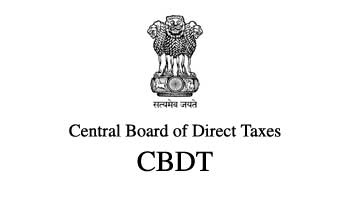INVC NEWS
New Delhi : Explore the economic landscape post the surge in the windfall tax on crude oil to Rs 7,100 per tonne. Delve into its far-reaching consequences on the oil industry, government revenue, and the economy.
The government has recently raised the windfall tax on domestic crude oil production from Rs 4,250 per tonne to Rs 7,100 per tonne. This notable increase, effective as of August 15, has raised eyebrows and prompted discussions about its implications for the oil industry, government revenue, and the economy at large.
The Windfall Tax Hike: A Closer Look
The windfall tax, which is levied on domestic crude oil production, has witnessed a substantial uptick. The decision to increase the windfall tax by the government underscores its commitment to balancing economic growth, environmental considerations, and revenue generation. This tax is a direct response to the dynamics of the oil market and aims to optimize government earnings without significantly affecting the average consumer.

Expanding the Tax Net: Diesel and ATF in Focus
In addition to the windfall tax on crude oil, the government has also made noteworthy adjustments to other segments of the energy sector. Export duty on diesel has been revised to Rs 5.50 per liter from the previous rate of Rs 1 per liter, signifying an effort to optimize revenue streams from diesel exports. Furthermore, the aviation industry is also subject to changes, as the windfall tax on Aviation Turbine Fuel (ATF) has been newly established at Rs 2 per litre.
An Unwavering Impact on Exports
It is important to note that the windfall tax primarily affects the export-oriented aspect of the oil industry. Domestically consumed petrol and diesel remain unaffected by this tax. The government’s focus on exports underscores its strategy to strike a balance between revenue generation and preserving the affordability of fuel for the domestic market.
The Windfall Tax on Petrol: An Exception
Interestingly, the government has chosen not to impose a windfall tax on petrol. Since its inception on July 1, 2022, the windfall tax on petrol has consistently remained at zero. This strategic move aims to stabilize the cost of petrol and minimize potential fluctuations that could impact consumers.
The Context of Recent Changes
The decision to raise the windfall tax on crude oil stems from a complex interplay of global market forces. Notably, the recent increase in crude oil prices, which has seen a rise from $70 to $85 per barrel due to production cuts by OPEC countries, has driven this change. The government’s response to these market dynamics showcases its proactive approach to maintaining economic stability.
The Essence of the Windfall Tax
The concept of a windfall tax, introduced in India on July 1, 2022, was conceived as a response to the substantial profits garnered by oil companies. Initially levied on petrol, diesel, Aviation Turbine Fuel (ATF), and domestic crude oil, this tax has rapidly gained traction as a viable revenue source for the government. The fact that the windfall tax is reviewed and revised every 15 days by the government demonstrates a commitment to adapt to evolving market trends.
A Look at the Path Forward
The increase in the windfall tax on crude oil production highlights the government’s commitment to leveraging revenue streams that are in line with market dynamics. By balancing taxes on exports and domestic consumption, the government aims to safeguard both the economy and the interests of the average consumer. As the energy landscape continues to evolve, it will be crucial to closely monitor the implications of these changes.













